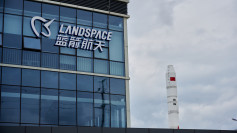Huawei Investment and Holding Co announced its plans on April 2 to distribute dividends totaling approximately 77.095 billion yuan ($10.65 billion) to its shareholders, a move that quickly trended on social media platforms.
The company clarified that this dividend distribution is a regular profit-sharing mechanism and does not adversely affect Huawei's operational capabilities, financial health, or debt repayment capacity.
Huawei Investment & Holding is a private enterprise entirely owned by its employees, with shareholders including the company's trade union committee and Ren Zhengfei, the company's founder.
According to Huawei's 2023 financial report, as of December 31, 2023, 151,796 individuals were part of Huawei's Employee Stock Ownership Plan, encompassing both current employees and retired staff. Ren Zhengfei himself holds shares in the company as a natural person and is a participant in the stock ownership plan, owning approximately 0.73% of the company's total share capital as of the end of 2023.
On average, each employee shareholder is set to receive a dividend of around 507,900 yuan.
Starting April 1, 2024, Xu Zhijun will serve as Huawei's rotating chairman until September 30, 2024. Xu joined Huawei in 1993 and has held various leadership positions, including President of the Wireless Product Line and Chief Strategy Marketing Officer. He is currently the Deputy Chairman and one of the rotating chairmen of Huawei.
Huawei's 2023 annual report, released on March 29, revealed that the company achieved 704.2 billion yuan in revenue and 87 billion yuan in net profit, indicating a 9.6% increase in revenue and a 144% surge in net profit compared to 2022. The company's investment in research and development was particularly notable, with 164.7 billion yuan spent in 2023 alone, amounting to 23.4% of its sales revenue. Over the past decade, Huawei has invested more than 1,110 billion yuan in R&D.
The terminal business, including Huawei smartphones, saw significant growth in revenue, contributing to the company's overall performance. In 2023, the ICT infrastructure business reported sales revenue of 362 billion yuan, a modest 2.3% increase, while the terminal business soared to 251.5 billion yuan, up 17.3% from the previous year.
The resurgence of the Huawei Mate60 series has been a critical factor in the rapid growth of terminal business sales. Counterpoint data indicates that in the fourth quarter of 2023, Huawei's smartphone sales in China increased by 71.1%, significantly contributing to the overall 6.6% growth in the Chinese smartphone market, despite a 9% decline in Apple's sales.
Huawei has also made strides in the high-end smartphone market, with Counterpoint reporting a 5% market share in the global high-end smartphone segment priced at or above $600, up from 3% in the previous year.
The successful launch of the HarmonyOS operating system has also bolstered Huawei's smartphone sales. As of January 18, Huawei announced that devices within the HarmonyOS ecosystem had grown to 800 million, with over 200 leading companies accelerating the development of native HarmonyOS applications.
Additionally, Huawei's automotive business saw significant progress in 2023, with the Smart Car Solution business generating 4.7 billion yuan in sales, a 128.1% increase from the previous year. Yu Chengdong announced that the smart car business achieved profitability in the first three months of the year and is expected to maintain positive development from April onwards.
On March 30, Yu Chengdong shared that the AITO brand under Huawei's smart travel initiative delivered 31,727 new vehicles in March, leading the new force brands in the Chinese market for three consecutive months. The new M7 model, in particular, has shown steady growth, with over 120,000 units delivered since its launch.
Looking ahead, Huawei will focus on creating value across all business units in 2024, as emphasized by Huawei's rotating chairman, Hu Houkun, in his New Year's address. Hu highlighted the importance of managing inventory risks and improving operational efficiency while leveraging the company's comprehensive advantages in computing, storage, and networking to support the digital and intelligent transformation of various industries.





